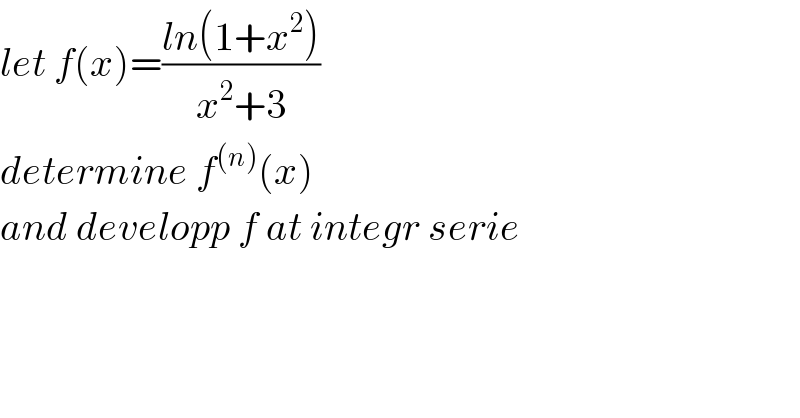
Question and Answers Forum
Previous in Relation and Functions Next in Relation and Functions
Question Number 120288 by Bird last updated on 30/Oct/20

Commented by TITA last updated on 30/Oct/20

Answered by TITA last updated on 30/Oct/20
![f^′ (x)=(((x^2 +3)(((2x)/(1+x^2 )))−[(ln (1+x^2 )(2x)])/((x^2 +3)^2 )) f′(x)= (([(x^2 +3)(2x)]−[(1+x^2 )(ln (1+x^2 ))(2x)])/((1+x^2 )(x^2 +3)^2 ))](Q120296.png)
Commented by Bird last updated on 30/Oct/20

